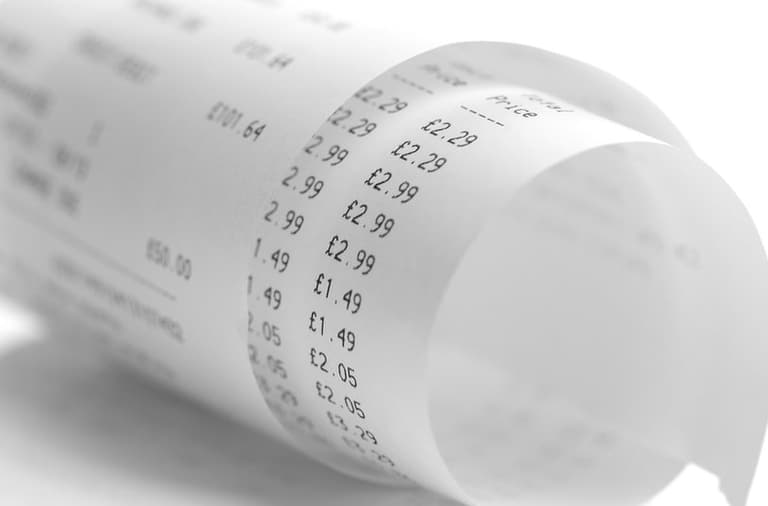While being a landlord is certainly enjoyable, interesting, and financially beneficial for many individuals, there are also plenty of mundane tasks when running a property business, including book keeping. Landlords have legal responsibilities in ensuring repairs and maintenance are conducted quickly and to a good standard, which may result in them incurring unexpected costs.
So, do landlords have to provide receipts for repairs in the United Kingdom?
Landlords should always be able to provide receipts or proof of expenses, as there are a range of scenarios which necessitate evidence for expenditure. Failure to provide proof of expenses may result in the landlord being unable to claim, or incurring a loss for repairs.
Although repairs and maintenance can become a grey area in determining who takes fiscal responsibility, landlords are generally responsible for repairs of the property’s structure. Receipts and thorough record keeping may seem tiresome but will assist in alleviating the strain of unfair costs paid by the landlord. Keep reading to find out why landlords need to keep a detailed log of all expenses, coupled with receipts.
Contents
Do Landlords Have To Provide Receipts For Repairs?
All landlords are obligated to ensure that repairs and maintenance are thorough and consistent for various aspects of the home if the tenancy agreement is for less than 7 years. This includes the structure of the building, sanitisation facilities such as sinks, baths, toilets and showers, plumbing and electrical systems, water heating, in addition to safe gas and electrical appliance usage.
Tenants are responsible for minor repairs such as the changing of lightbulbs or fuses, decorations, as well as any damage which has been caused by the tenant or the tenants’ family members. Other details on which repairs the landlord or tenant are responsible for, are usually described in the original tenancy agreement.
Landlords will always be legally obligated to have a thorough record keeping process throughout the duration of the tenancy, and this is necessitated by various systems and causes. In terms of provision, landlords are required to have access to all records, evidence, and receipts of all costs involved with the property. To whom these documents will need to be provided, will depend on the scenario.
Taxes For Property Income Business
Landlords are required to submit evidence of expenses, which includes receipts relating to specific costs of repairs when organising rental income information for tax returns. This is done so that full evidence is given for complete relief of these expenses, which ensures that landlords do not pay more tax than is appropriate according to the evident income.
These records need to indicate expenses for revenue and capital items and should indicate details such as the date of the expense, the supplier or service provider, in addition to any VAT factors.
Expenses which may be deducted in calculating overall profit for the property rental income include repairs, cleaning, gardening, and maintenance expenses, in addition to letting agent costs, accountant costs, legal costs, insurance, utility expenses, necessitated certificates, mortgage interest (or elements), council tax, and property advertising costs.
Scenario-Dependent Provision Of Receipts
Other reasons for landlords keeping receipts of repairs are associated with potential scenarios which may develop in the future, such as insurance claims, home inspections, and potential tenancy deposit deductions.
Landlords may include a certain cost within the rent which will either contribute to, or cover the cost of repairs, which would be detailed in the tenancy agreement. But, landlords cannot pass on the practical and fiscal responsibility of conducting obligatory repairs to the tenant.
There are various reasons why landlords will be required to have an efficient record keeping process, accumulation of well-organised receipts for all maintenance and repairs done to the property, and transcribed details associated with incurred costs. But, whom they will need to be provided too, will depend on the situation.
Usually, receipts are required by councils, governmental bodies, insurance providers, and other parties for tax, certifications, inspections, proof of compliance, claims, and other reasons which relate to the performance and income of the landlord as well as the property itself. The necessitated repair standards are also supported by the Homes Act, which explains that all rental properties must meet certain a criteria for human habitation.
Landlords will be required to provide copies of receipts to tenants in scenarios where the tenancy deposit is being used for reimbursement, or there is a dispute with fees. Original receipts are necessitated in court, whereby evidence of all expenses will need to be disclosed. It’s therefore imperative that landlords keep all receipts in the event that they need to be provided.

Do Landlords Have To Provide Receipts For Tenancy Deposit Deductions?
Yes. Although tenancy deposits are protected by the Tenancy Deposit Scheme (TDS), there are scenarios which will legally enable landlords to deduct from the deposit.
Common causes for claiming from the tenant’s deposit include various acts of damage by the tenant, unpaid fees, and missing items from the inventory. Landlords may also make a claim from the deposit for reasons which relate to damage necessitating repairs which they are not fiscally responsible for.
This includes direct or indirect damage to the property of the landlord in addition to its contents. Examples of direct damage include burns or stains to carpets or upholstery, holes in walls, or broken furniture.
Examples of indirect damage to the property include neglect which may result in a wide range of harmful repercussions to the value and overall care of the property. Or unhygienic living conditions for the next tenant. Costs for the safe storage or removal of items left behind by the tenant may also be deducted from the tenants deposit.
Usually, the specific nature of what the tenant is expected to maintain is disclosed in the Assured Shorthold Tenancy (AST) agreement. Landlords cannot claim to make deductions from the tenancy deposit for situations where the tenant has breached the terms of the AST, but has not caused the landlord to incur any related financial losses.
Landlords are required to provide evidence to tenants when negotiating any deductions. Wear and tear cannot necessitate a deposit deduction, such as fading or minor scuffs to furnishings from everyday living.
While receipts are required for service charges, repairs, cleaning, and other costs related to direct or indirect damage by the tenant, other scenarios necessitate other proof of costs, such as estimated values of damaged property, or financial breakdowns.
This includes scenarios where perhaps an old piece of furniture has been broken, whereby the tenant is not responsible for covering the cost of new furniture but is required to cover the cost of the loss. In such a scenario, the landlord will need to provide evidence describing the monetary value of the old piece of furniture based on its age and condition, which will then be the value deducted from the tenants deposit.
What Is A Landlord Required To Disclose To A Tenant?
Landlords are legally obligated to disclose certain documents to the tenant in addition to the clear details described in the tenancy agreement. This includes the following:
Gas Safety Certificate
This is essential for all properties which include gas-operated appliances. This certificate must be provided to the tenant at the start of the tenancy, and whenever it is updated. The property will need to be evaluated by a registered Gas Safe engineer every 12 months in order to remain compliant.
Deposit Protection Scheme Details
All landlords operating in England and Wales are legally required to have tenants’ deposits held in a government-backed Tenancy Deposit Scheme which protects both the landlord and tenant during the lease agreement. Landlords must provide tenants with related documents within 30 days of occupying the rental property.
A Copy Of The Governments ‘How To Rent’ Checklist
Landlords are legally obligated to provide tenants with a copy of this checklist, which describes each stage of the renting process.
Energy Performance Certificate (EPC)
This system rates from ‘A’ being the most efficient to ‘G’ being the least efficient, and landlords must achieve an EPC score of at least ‘E’ (at the time of writing) in order to let the property to a tenant. A copy of this certificate must be given to the tenant at the start of the occupancy.
Electrical Installation Condition Report (EICR)
Other requirements include the checking of electrical appliances provided by the landlord, and the mandatory inspection of the electrical installation at least every 5 years. Copies of the EICR are to be made available to the tenant.
Smoke And Carbon Monoxide Alarms
Smoke alarms and carbon monoxide alarms should also be provided and inspected periodically. Reports on these functions should be provided to establish a safe living environment for the tenant.
Accurate Contact Details
Tenants have the right to accurate contact details, and the landlord has the freedom to provide either personal details or the details of the letting agent. Contact details will need to be truthful and must include the landlord’s full name, telephone number for emergency contact, and address.
Summary
Ensuring that all receipts and record keeping are detailed, thorough, accurate, and up to date will be incredibly beneficial for any landlord, as there is a wide range of circumstances where proof of expenses will assist in alleviating financial strain.
Without appropriate proof of expenses, landlords may face the risk of loss, the risk of not being able to prove compliance with legal housing standards, and may be unable to claim for costs which they are not legally responsible for.


